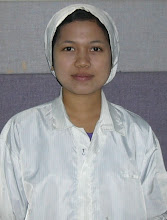Acupuncture is a natural, drug free treatment option that is increasingly popular in the Western world. In the West, it is primarily associated with pain relief. However, it is often used to treat a wide range of other health conditions. One of the areas where it has been shown to be effective is in women's health concerns.
Acupuncture is a practice that involves the insertion of very fine, sterile needles into the body at certain points. This is a holistic treatment, meant to treat the body as a whole organism rather than isolating separate parts. From a Traditional Chinese Medicine (TCM) perspective, acupuncture works by restoring the balance of yin and yang in the body, and enhancing or correcting the flow of Qi (energy) by removing blockages that can cause all kinds of pain and illnesses, including many problems specific to women's health.
Many practitioners of this ancient art as well as their patients claim that these treatments can successfully reduce or alleviate problems such as irregular or heavy periods, menstrual cramps, premenstrual syndrome (PMS), uterine fibroids, and even problems like polycystic ovarian syndrome (PCOS), endometriosis and other infertility issues. Acupuncturists utilize techniques that are thought to help regulate the ovarian cycle, stimulate egg production, improve the balance of hormones and even increase blood flow to the womb.
A German study published in the American Journal of Obstetrics and Gynecology in 2008 showed that the majority of women who had acupuncture for menstrual cramps, discomfort and pain saw at least a 33 percent reduction in their pain level as compared to women who received no treatment. In addition, a Danish study found that women receiving acupuncture had a significantly higher rate of pregnancy versus a control group who did not receive this treatment.
Many more general studies have shown that acupuncture stimulates the body to produce natural steroids and release endorphins, which help to reduce inflammation and pain. All practitioners agree that their techniques enhance the mind and body's own ability to heal itself, and women's issues are no exception to the rule.
Practitioners of Traditional Chinese Medicine often use herbs as well as dietary, exercise and lifestyle advice in conjunction with acupuncture treatments to obtain better results. Also, it is not uncommon for acupuncture to be successfully used as a complementary therapy along with more "mainstream" fertility and women's health care options. In fact, some acupuncturists have extensive schooling in both Western medicine and Traditional Chinese Medicine, which can help them better integrate different types of care for maximum efficacy.
If you're looking for a Portland Acupuncturist with experience in treating women's health problems and infertility, call on Dr. Lu Acupuncture and Massage Clinics. With over 20 years experience and extensive training in both Traditional Chinese Medicine and Western medicine, they use acupuncture, herbal medicine and Chinese tuina massage to treat many conditions. SEO 2.0 Services [http://seo-search-engine-optimization.netbiz.com/]


